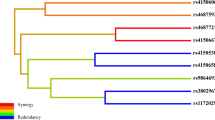Abstract
Objective
Excision repair cross-complimentary group 2 (ERCC2) is one of the important DNA repair genes. ERCC2 codon 751 polymorphism has been shown to modulate cancer risk. We therefore assessed the relationship between the ERCC2 polymorphism and the susceptibility to lung cancer in nonsmoking females via a hospital-based case-control study.
Methods
There were 105 lung cancer cases and matched healthy controls in this study. Information concerning demographic and risk factors was obtained, each person donated 2 ml blood for biomarker testing. ERCC2 genotypes were determined by PCR-RFLP method. All of the statistical analyses were performed with SPSS (v 12.0).
Results
All of the subjects in this study were nonsmoking females in Shenyang. There was significant difference between the frequencies of ERCC2 polymorphism in cancer cases and controls (P<0.05). The frequencies of ERCC2 751 Gln allele were 6.2% in controls and 13.8% in cancer cases. The individuals with Lys/Gln+Gln/Gln combined genotype were at an increased risk for lung cancer as compared with those carrying the Lys/Lys genotype (adjusted OR=2.80, 95%=CI 1.21−6.48). We analyzed the environmental risk factors for lung cancer in nonsmoking females. The cancer patients showed a higher prevalence of exposure to cooking fumes compared with controls (OR=2.44, P<0.05). Furthermore, an interaction between exposure to cooking fumes and the variant ERCC2 751 Gln allele on the risk of lung cancer was observed. Individuals with both risk genotype and exposure to cooking fumes had a higher risk of cancer than those with only one of them.
Conclusion
The above findings indicate that the genetic polymorphism in the ERCC2 codon 751 is associated with the risk of lung cancer in nonsmoking females.
Similar content being viewed by others
References
Shields PG, Harris CC. Cancer risk and low-penetrance susceptibility genes in gene-environment interactions [J]. J Clin Oncol 2000;18:230915.
Mohrenweiser HW, Jones IM. Variation in DNA repair is a factor in cancer susceptibility: a paradigm for the promises and perils of individual and population risk estimation [J]? Mutat Res 1998; 400:15–24.
Jin YT, Zhou XT, He XZ. Gnetic epidemiology study on lung cancer in women [J]. Chin J Pre Control Chronic Non-Commun Dis (in Chin) 1998; 6:5–7.
Wu CQ, Zhang ZH, Li DY. Experimental study on DNA damages induced by cooking oil fume condensates [J]. Chin J Public Health (in Chin) 2002; 18:137–138.
Shen MR, Jones IM, Mohrenweiser H. Nonconservative amino acid substitution variants exist at polymorphic frequency in DNA repair genes in healthy humans [J]. Cancer Res 1998;58:604–608.
Lunn RM, Helzlsouer KJ, Parshad R, et al. XPD polymorphisms: effects on DNA repair proficiency [J]. Carcinogenesis 2002; 21:551–555.
Hou SM, Falt S, Angelini S, et al. The XPD variant alleles are associated with increased aromatic DNA adduct level and lung cancer risk [J]. Carcinogenesis 2002; 23:599–603.
Au WW, Salama SA, Sierra-Torres CH. Functional characterization of polymorphisms in DNA repair genes using cytogenetic challenge assays [J]. Environ Health Perspect 2003; 111:1843–1850.
Spitz MR, Wu X, Wang Y, et al. Modulation of nucleotide excision repair capacity by XPD polymorphisms in lung cancer patients [J]. Cancer Res 2001; 61:1354–1357.
Yin J, Vogel U, Ma Y, et al. Polymorphism of the DNA repair gene ERCC2 Lys751Gln and risk of lung cancer in a northeastern Chinese population [J]. Cancer Genet Cytogenet 2006; 169:27–32.
Zienolddiny S, Campa D, Lind H, et al. Polymorphisms of DNA repair genes and risk of non-small cell lung cancer [J]. Carcinogenesis 2006; 27:560–567.
Vogel U, Laros I, Jacobsen NR, et al. Two regions in chromosome 19Q13.2-3 are associated with risk of lung cancer [J]. Mutat Res 2004; 546:65–74.
Liang G, Xing D, Miao X, et al. Sequence Variations in the DNA repair gene XPD and risk of lung cancer in a Chinese population [J]. Int J Cancer 2003; 105:669–673.
Popanda O, Schattenberg T, Phong CT, et al. Specific combinations of DNA repair gene variants and increased risk for non-small cell lung cancer [J]. Carcinogenesis 2004; 25:2433–2441.
Park JY, Lee SY, Jeon HS, et al. Lys751Gln polymorphism in the DNA repair gene XPD and risk o primary lung cancer [J]. Lung cancer 2002; 36:15–16.
Chen S, Tang D, Xue K, et al. DNA repair gene CRCC1 and XPD polymorphisms and risk of lung cancer in a Chinese population [J]. Carcinogenesis 2002; 23:1321–1325.
Author information
Authors and Affiliations
Corresponding author
Additional information
This work was supported by grants from China Medical Board (No. 00726) and National Natural Sciences Foundation of China (No. 30471493).
Rights and permissions
About this article
Cite this article
Yin, Zh., Li, Mc., Cui, Zs. et al. Relationship between ERCC2 polymorphism and risk of lung cancer in Chinese nonsmoker. Chin. J. Cancer Res. 19, 184–188 (2007). https://doi.org/10.1007/s11670-007-0184-4
Received:
Accepted:
Issue Date:
DOI: https://doi.org/10.1007/s11670-007-0184-4




